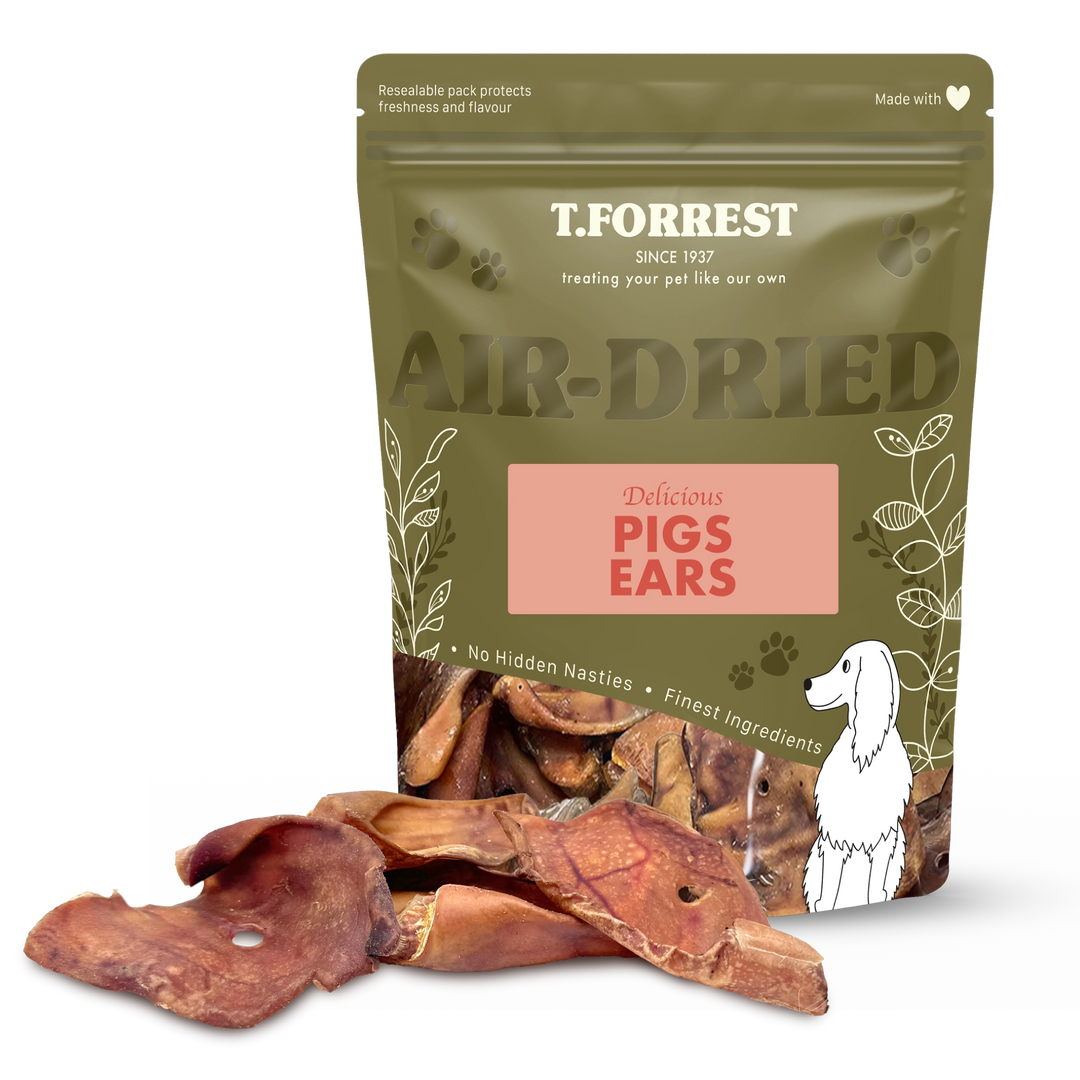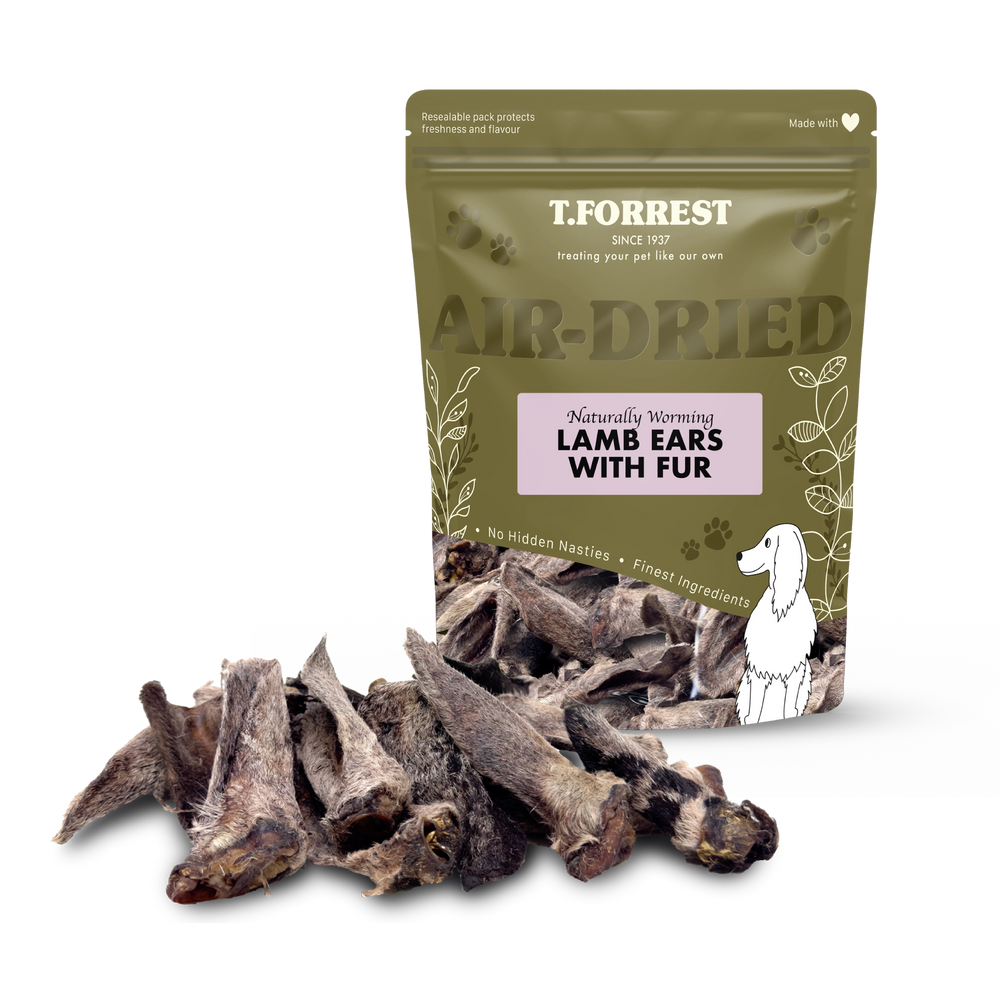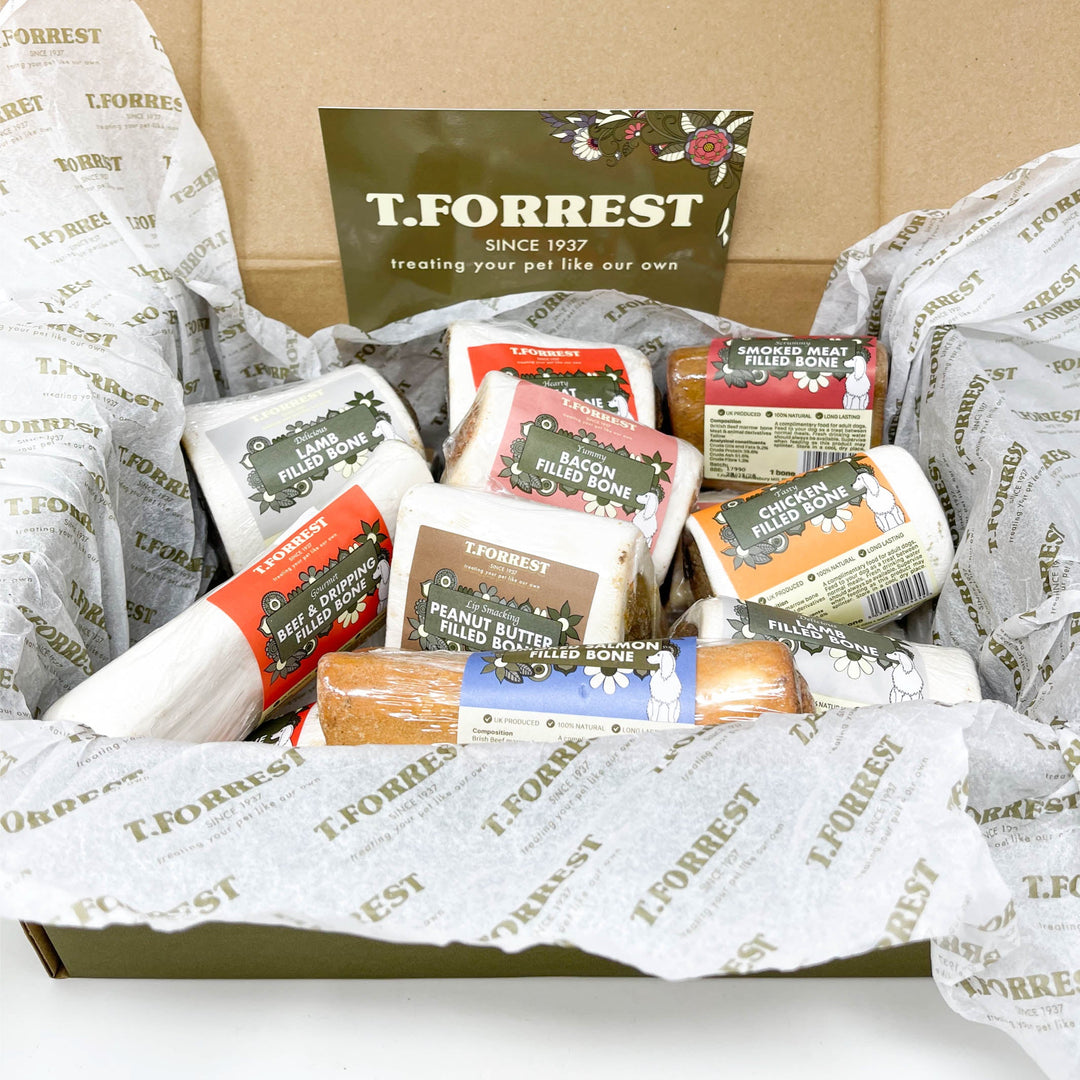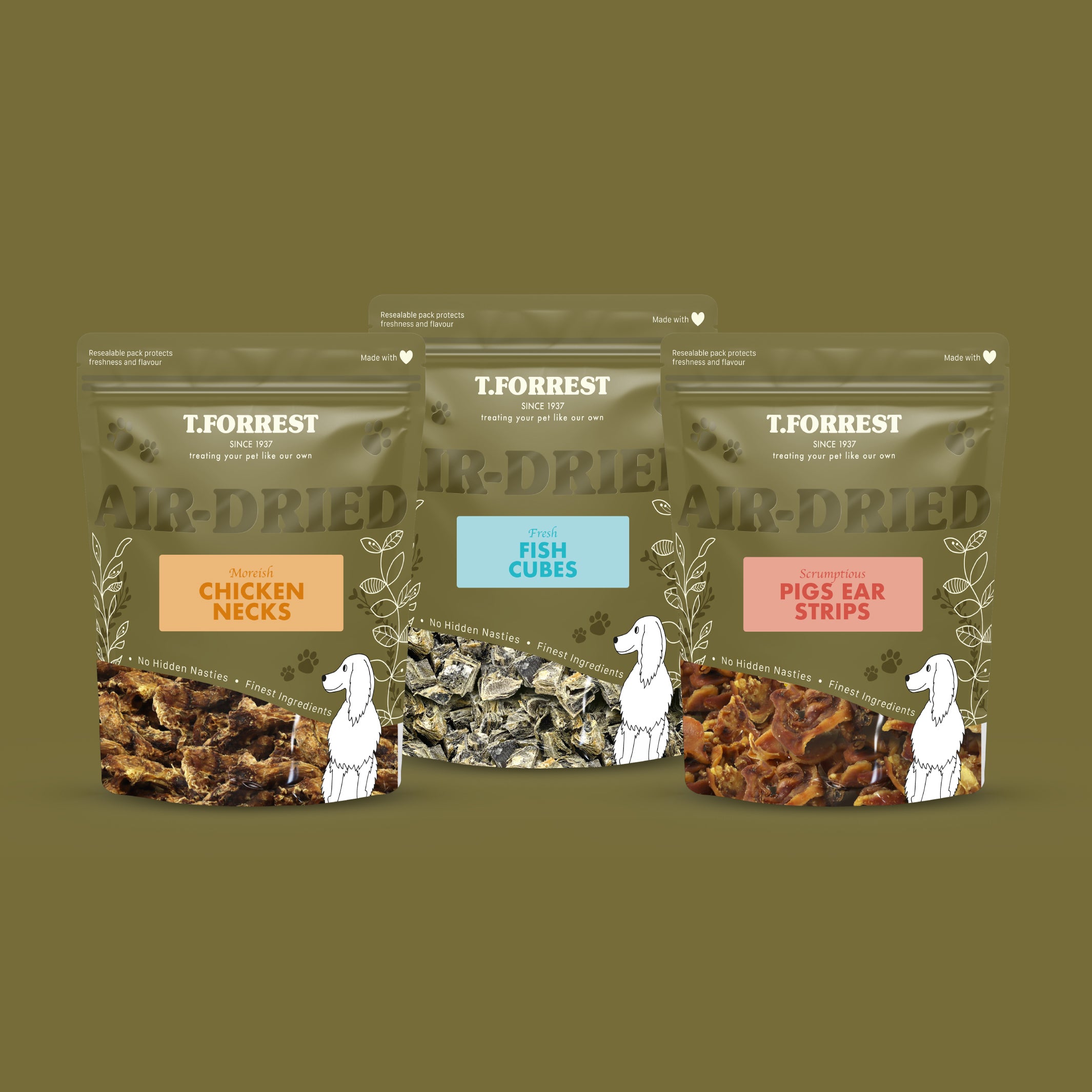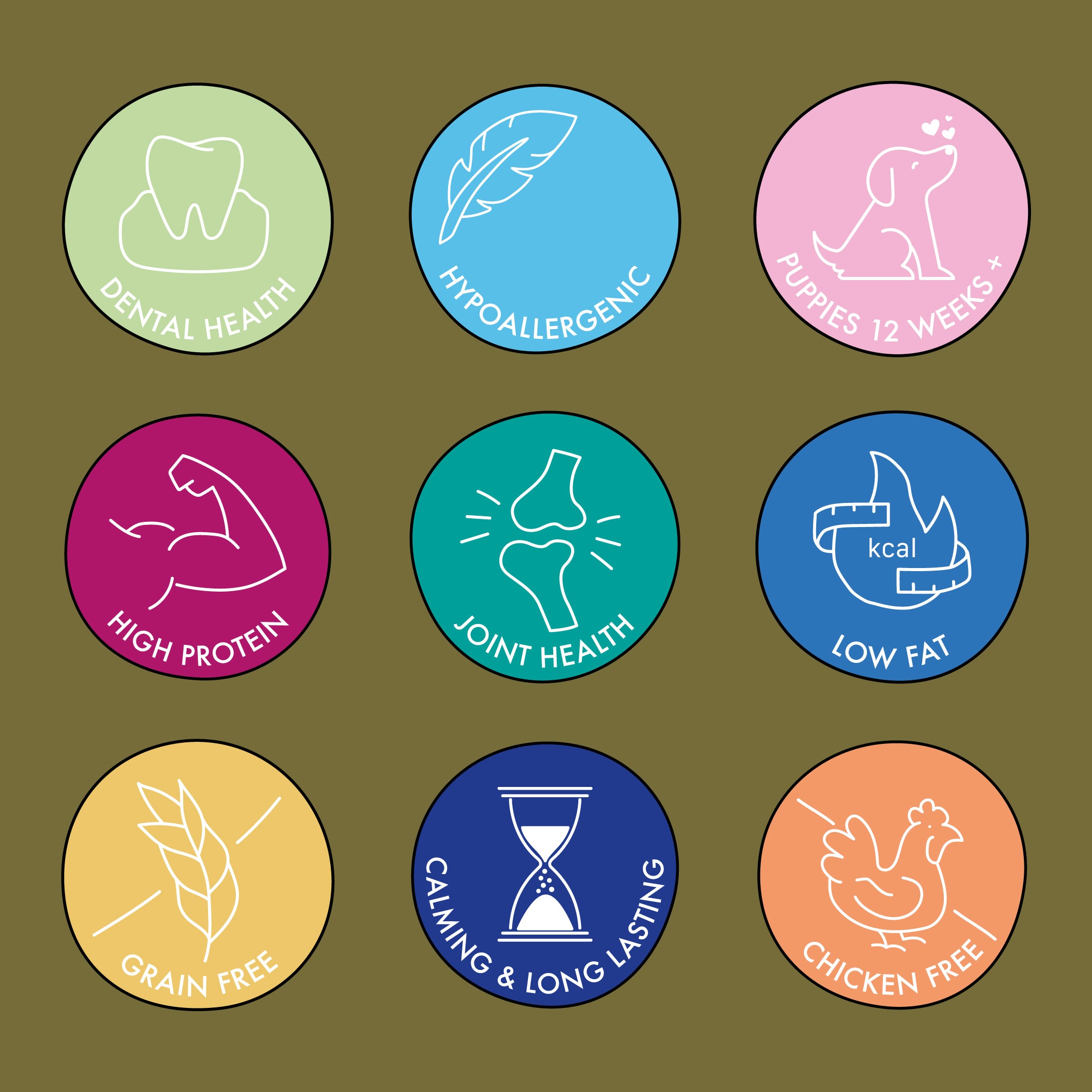Labrador Retriever
Are you looking to adopt a pet that's loyal, lovable, and good with the family? Then look no further than the adorable Labrador Retriever. There's a reason why Labs are the number one dog breed in both the U.S and the U.K. In fact, Labs are famous for their gentle disposition and intelligence.
If you've been on the lookout for answers to questions like, 'Are Labradors easy to train?' and 'Do Labradors make good house dogs?' - then go through our list of 9 helpful facts about Labs to satisfy your curiosity.
History lesson
Labs are originally from the coasts of Newfoundland, off the northeastern Atlantic coast of Canada. And, they weren't called Labrador Retrievers in the beginning - they were called the St. John's dog. The breed was cultivated to help fishermen with tasks like fetching ropes, hauling nets, and retrieving fish that had escaped from the nets - that's where the name 'Retriever' comes from.

Now, Labs make excellent family dogs. They're friendly, safe around children, and easy to care for.
LOOKS AND BUILD
COAT COLOURS
Labrador Retrievers have a lush, water-repellent coat that keeps them looking sharp. This means you have to give them the occasional bath to keep them clean, and they tend to shed throughout the year.
According to the Labrador Breed Standard, the officially recognised Lab coat colours are:
- Black
- Yellow/ Golden
- Chocolate
Although, Silver Labrador Retrievers are gaining popularity even though they remain somewhat controversial.
TEMPERAMENT
First-time dog parents are always concerned about a dog's temperament, and a lot of people ask whether Labrador Retrievers are aggressive. That's a valid concern, especially for families with little kids.
But, that's what is so great about Labs - they're not aggressive at all. As a matter of fact, Labs are considered to be the most gentle and sweet-natured dogs out of the lot. They're outgoing and eager to please. Additionally, they're also very intelligent, which also makes them easy to train.
However, you should also know that Labs are extremely active, and they need a lot of mental and physical stimulation to stay fit.
TRAINABILITY

DIET
Generally, a dog's diet depends on its age, size, metabolism rate, activity level, and build. For instance, an active dog with a high metabolism rate will need more food than a doggy's that's not. Also, the better the quality of the food and treats you buy, the more filling it will be, and the less you'll need to feed your pet.
The recommended daily diet for adult Labs is around 2.5 to 3 cups of top-notch dry dog food - divided into two meals. But, not all Labs are created equal, and that's why you should always consult a vet regarding your canine's diet. Labrador Retriever puppies tend to grow at a fast pace between 4 to 7 months, and that's why you need to pay special attention to their diet and treats.
HEALTH PROBLEMS
Labrador Retrievers are healthy and fit dogs overall but like most breeds, they can be prone to certain health conditions. Again, not all Labs will develop these diseases, but you need to know about them.
Always approach a reliable breeder when you're thinking about getting yourself a Labrador puppy. Responsible breeders will generally screen their stock for conditions like heart disorders, hereditary myopathy, hip, and elbow dysplasia, and exercise-induced collapse (EIC).
Like other large-breed dogs, Labs are also prone to developing life-threatening conditions, like bloat, and you should educate yourself about the symptoms of this condition if you own a large-breed dog.
EXERCISE
It's a well-known fact amongst Lab parents, that this breed loves to eat.
But, unfortunately, Labradors are also prone to weight gain, which can be detrimental to their health.
Thankfully, Labs are highly energetic and need plenty of exercise every day. Dogs who don't get enough physical activity can develop behavioral problems and become hyperactive. 
Labradors are partial to swimming and love retrieving things (no pun intended). They also love going on walks, hiking, and going on hunting trips. A solid hour of exercise, playing fetch, or jogging is great for most young Labs.
GROOMING
Labs aren't very high-maintenance, and grooming them doesn't require a lot of effort. However, Labs have a luxuriant double coat that sheds a lot - which means you need to brush them daily (and perhaps invest in a vacuum cleaner).
Labradors will only need to bathe once every two months unless they go rolling around in dirt and mud. Although, when it comes to oral hygiene, you need to brush your Labrador's teeth at least three times a week to avoid issues like bacteria and tartar build-up.
Finally, nails have to be trimmed twice a month if you want to avoid scratches - on your floors, or your legs.
You've probably figured out the answer to the question, ‘do Labrador Retrievers make good pets?’ is a resounding ‘YES!’.
Labs are low maintenance, childishly exuberant, steadfast, and very accommodating - what more could you ask for in a pet? Our advice is, don't waste any more time, and get yourself a Lab, as soon as you can. You can be sure your Labrador will love you with all its heart and will bring more joy to your life.


